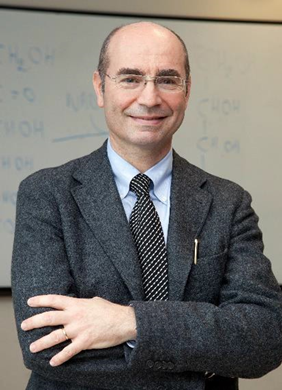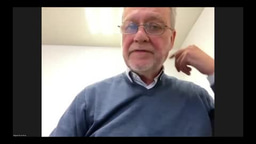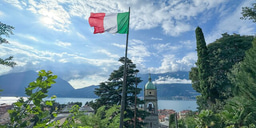FEBS 60th anniversary reflections – Mauro Maccarrone, FEBS Advanced Courses Committee Chair


In brief, what is your role at FEBS?
I am chairing the Advanced Courses Committee. This oversees several aspects of the lecture courses, workshops, practical courses and special meetings that make up the Advanced Courses programme, and in particular the calls for funding applications from researchers interested in running such events. Like other Chairs of FEBS Committees, working in different areas of FEBS activities, I am also a member of the FEBS Executive Committee and act as a Director and Trustee of FEBS.
Tell us a little about your research interests and career.
I hold doctorates in enzymology and in bio-organic chemistry, and spent my 35-year long career investigating bioactive lipid signalling, with a track record of numerous highly cited (ca. 25,000 times) full papers. I am Professor and Chair of Biochemistry at the University of L’Aquila, Italy, and Head of the Lipid Neurochemistry Unit at the European Center for Brain Research – IRCCS Santa Lucia Foundation, Rome. I have a special interest in cannabinoids and was President of the International Cannabinoid Research Society (ICRS) 2010–2011 and Chair of the 2015 Gordon Research Conference on “Cannabinoid Function in the CNS”.
What was your first contact with FEBS?
I attended my first FEBS Congress 35 years ago in Rome (1989), and I still have vivid memories of the excitement of those early days, when as a young researcher I had the chance to meet outstanding scientists and even Nobel laureates.
Why do you volunteer your time now to FEBS leadership and committee work?
At this point of my professional career, I regard it as an honour, privilege and yet great responsibility to be able to serve FEBS and the large community of European biochemists.
Looking back over 60 years of FEBS, what about FEBS or its programs would you pick out as particularly valuable for ‘advancing molecular life sciences’?
I believe that Advanced Courses represent indeed a plus in FEBS programmes, because they give to every young scientist a great opportunity to improve knowledge on cutting-edge topics, and – maybe even more important – to make contacts with other brilliant young and/or senior colleagues for performing better research. I had myself such an opportunity, when in 1990 I could visit Johannes Vliegenthart’s and Gerrit Veldink’s lab in Utrecht (NL), where I started working on bioactive lipids. I never stopped since then!
What are your main goals at FEBS over the next year or so?
I hope to contribute to enhancing promotion and visibility of the many programmes that FEBS runs, for instance by extending collaboration with European and/or overseas partners.
What do you see as the big unanswered questions in the molecular life sciences for the future?
I believe that we should understand better how biochemistry works at the nanoscale level, for instance by visualizing the movement of key molecules (enzymes, receptors) within the cell.
What does FEBS mean to you?
A high-quality, highly reliable and respected brand name.
What FEBS opportunities would you recommend to scientists at your or an earlier career stage?
I would recommend to get involved in FEBS activities, and to take advantage of the many opportunities that FEBS offers to scientists at all career stages.
Top image of post: Rome, one workplace of Mauro Maccarrone and host city of the 19th FEBS Meeting (Congress) in 1989. Photo by Marco Chilese on Unsplash.





Join the FEBS Network today
Joining the FEBS Network’s molecular life sciences community enables you to access special content on the site, present your profile, 'follow' contributors, 'comment' on and 'like' content, post your own content, and set up a tailored email digest for updates.